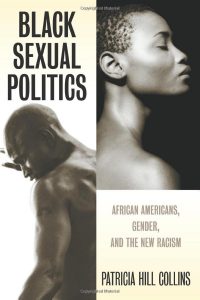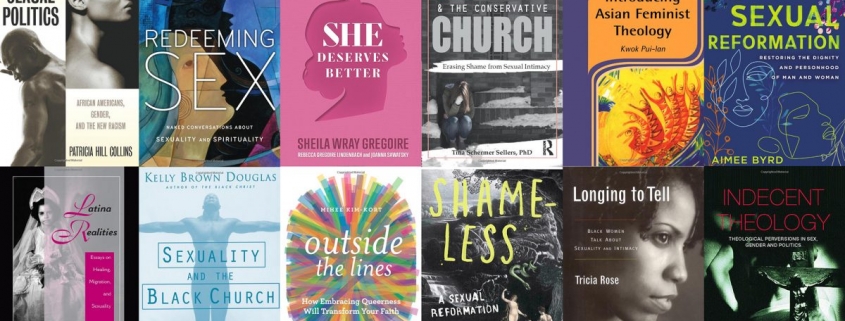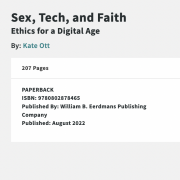Tired of reading only male perspectives on Christian sexuality? Here are 14 women you ought to read
This article originally appeared at Baptist News Global on May 19, 2023.
The past few months have been marked by evangelical men writing about sexuality in ways that center their perspective and pleasure while ignoring the perspectives and pleasure of women.
In one interview about his controversial book, Josh Butler said he continues to see his theology of sexuality as “way more beautiful and compelling than anything else our culture has on offer.”
That begs the question: What else does our culture have to offer regarding Christian theologies of sexuality?
Taking the scholarship of women seriously
Despite the overwhelming focus on books and articles written by men, there are many resources about sexuality written by Christian women over the past 30 years from a wide variety of racial and theological perspectives.
The problem is not that women aren’t writing. It’s that conservative evangelical men aren’t paying attention to them.
After searching The Gospel Coalition, Desiring God, Grace to You, and the Council on Biblical Manhood and Womanhood, I could find just two quick negative references to the women I reference below. The majority of their engagement with scholarship by women is with Aimee Byrd.
Perhaps they feel more threatened by Byrd, given her knowledge of how they think due to her experience in the Orthodox Presbyterian Church and given how she would resonate with many of their readers due to her commitment to traditional sexual ethics. But for those who write from perspectives beyond where Byrd is willing to go, conservative evangelical men seem to act like their work doesn’t exist.
TGC and Mere Orthodoxy author Patrick Miller recently dismissed engaging with New Testament Scholar Laura Robinson’s review of Butler’s Beautiful Union book. He explained, “Laura comes to this dialogue with very different presuppositions than I do re: Christian sex ethics.” Miller said Robinson’s critiques “aren’t the kind of critiques I’m as interested in pursuing on my podcast (I am interested in the critiques of those who hold to a traditional Christian sex ethic).”
“The standards for women are on the moon in the church. For men they’re in the basement.”
Robinson responded, “Can you see why women are fed up? If a man writes a bad article, you must buy his book and keep your thoughts to yourself except to praise him. If a woman ever gets frustrated, you can read one sentence of hers out of context and use that to justify ignoring her forever. … The standards for women are on the moon in the church. For men they’re in the basement.”
Books about sexuality from racially and theologically diverse women
I have put together a list of classic and current books by women that should be taken seriously on this topic. Because these resources come from a variety of perspectives, they do not all share the same experiences or theological priorities. In fact, I have disagreements with some of these resources as well.
Of course, I can already hear the groaning of conservative white men saying human perspectives are irrelevant when the Bible has revealed objective, unchanging universal truth. But that knee-jerk reaction betrays the fact that they lack the awareness of how the Bible was written from culturally situated perspectives, and they lack the awareness of how culturally formed their interpretation is.
At least these women are aware and honest about the perspectives they are writing from.
It’s time we step out of our white male echo chambers and begin taking the perspectives of women seriously. As you’ll see, there is so much more complexity and depth in sexual ethics we can explore if we’re willing to listen and learn.

Black Sexual Politics: African Americans, Gender, and the New Racism
Author: Patricia Hill Collins
Publisher: Routledge (2005)
Collins has been a leader in Black feminist thought for nearly four decades. Examining how differences in penalty and privilege occur in gender, race and class, Collins says empowerment comes when people can “think and speak for themselves.” But as she reflects back through the journey of Black men and women since the 1960s, she notes how much has changed, especially through “gender-specific contours of racism.” She argues sexual politics affects how men and women perceive and treat one another across race and class contexts. And she analyzes how these dynamics have a “disproportionate impact on African Americans” to a degree that is more pressing today than ever.










Leave a Reply
Want to join the discussion?Feel free to contribute!